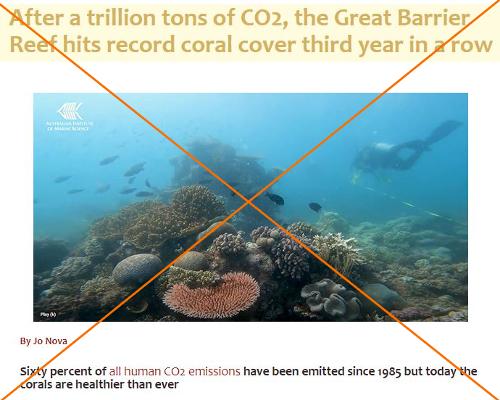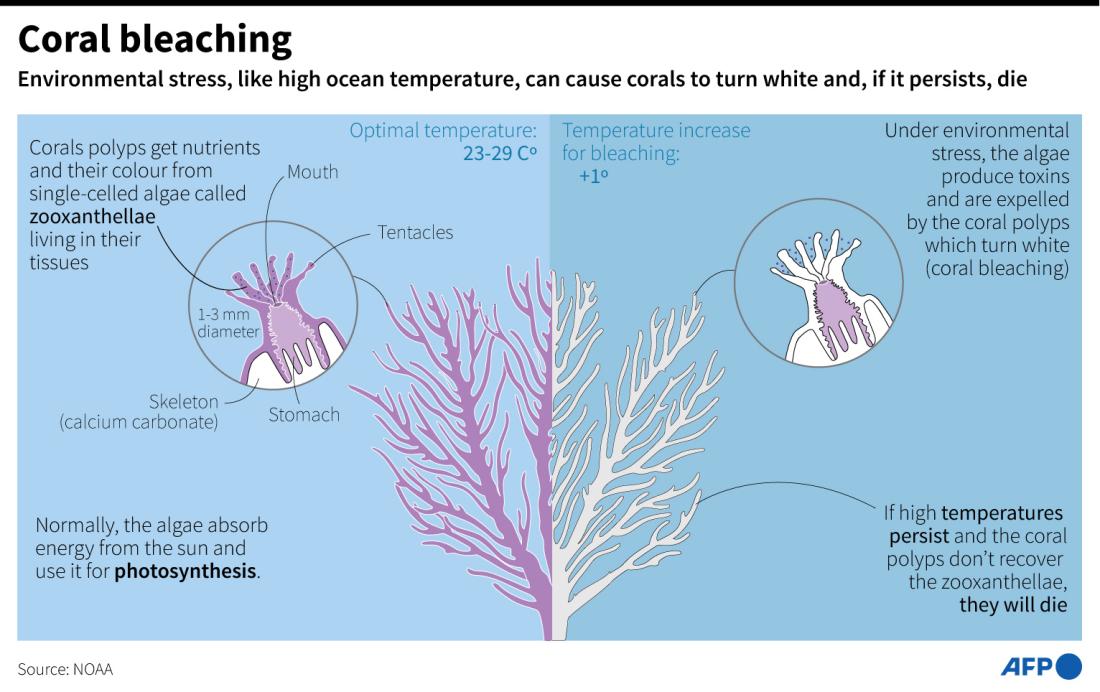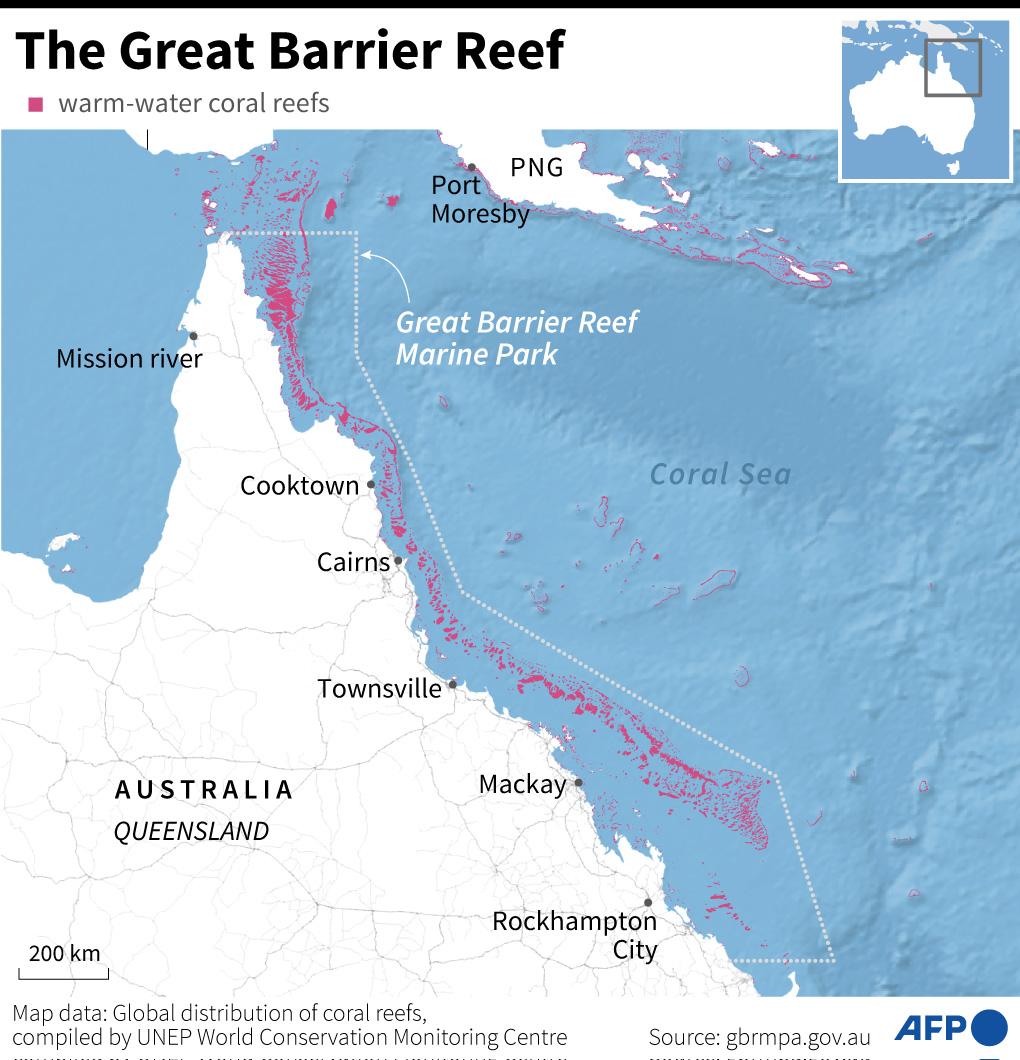
Australian marine agency data exploited to mislead on reef health
- This article is more than one year old.
- Published on July 11, 2024 at 21:45
- 3 min read
- By Manon JACOB, AFP USA
"After a trillion tons of CO2, the Great Barrier Reef hits record coral cover third year in a row," says the headline of a June 29, 2024 blog post by Jo Nova, author of the "The Sceptics Handbook" (archived here).
The article, which describes a "thriving" and "healthier than ever" reef, circulated on X in several languages, including English, German, Dutch and French.

Nova, an Australian commentator, has repeatedly dismissed the significance of mass bleaching and acidification on ocean ecosystems over the years.
Her latest claims are misleading, marine experts told AFP.
"Any assertion that the reef is currently in its best state is erroneous, particularly given the recent bleaching that affected many areas including the southern Great Barrier Reef," said Peter Mumby from the University of Queenland's Centre for Marine Science on July 8 (archived here).
Earth's largest coral reef system suffered what scientists consider its worst bleaching event during the summers of 2023 and 2024, when water temperatures rose and corals expelled microscopic algae to survive.
Extreme bleaching affecting more than 90 percent of coral cover has occurred in all three regions of the Great Barrier Reef this year (archived here). The phenomenon is tied to ocean temperature records and has occurred five times since 2016, boosted by human-caused global warming (archived here).

Pending 2024 data
Nova cites official data from the Australian Institute of Marine Science (AIMS) to support her claim of "record growth" in coral cover in 2024.
However, an AIMS spokesperson told AFP in a July 9, 2024 statement that such references are misleading because the agency has yet to provide final data for this year. The report will be published in August.
Marine authorities have conducted partial surveys (archived here), but AIMS said most of the data collection for its 2024 report precedes peak thermal stress in the region -- an episode the agency described as "one of the most extensive and serious on record."
The spokesperson said "the mass bleaching event is not yet over," so it is too soon to know its full effect.
"AIMS survey teams will return to the water in September and any impacts on levels of coral cover from the 2024 bleaching event will be reported in mid-2025 in our annual report on coral cover," they said.

However, data analyzed by the Global Coral Reef Monitoring Network show a downward trend in the amount of coral on reefs between 2009 and 2018 (archived here).
"This loss reflects the cumulative impacts of previous coral bleaching events and local pressures such as pollution, coastal development and overfishing," the AIMS spokesperson said.
Jen McWhorter, a research scientist at the National Oceanic and Atmospheric Administration's Atlantic Oceanographic and Meteorological Laboratory (archived here), said July 10 that any increase in coral coverage is "likely from branching coral and is not representative of the recovery of the reef as a whole."
Broad consequences
Sally Keith, senior lecturer in marine biology at Lancaster University in the United Kingdom (archived here), said coral cover is a "simple metric" that does not capture the effect mass bleaching and mortality events have on different species.
"Coral composition is important for ecosystem functioning and baseline biodiversity," she said July 10.
Reefs have persisted for millennia, but researchers are examining the effect of bleaching on broader ecosystems.
According to Terry Hughes, director of the Australian Research Council Centre of Excellence for Coral Reef Studies (archived here), the key is to examine how "the mix of species that occur on or near reefs changed in recent times" (archived here).
The United Nations Intergovernmental Panel on Climate Change says "further reef degradation due to future climate change now seems inevitable, with serious consequences for other marine and coastal ecosystems" (archived here).
AFP has previously debunked other claims about Australia's Great Barrier Reef and mass bleaching events.
Copyright © AFP 2017-2026. Any commercial use of this content requires a subscription. Click here to find out more.
Is there content that you would like AFP to fact-check? Get in touch.
Contact us




